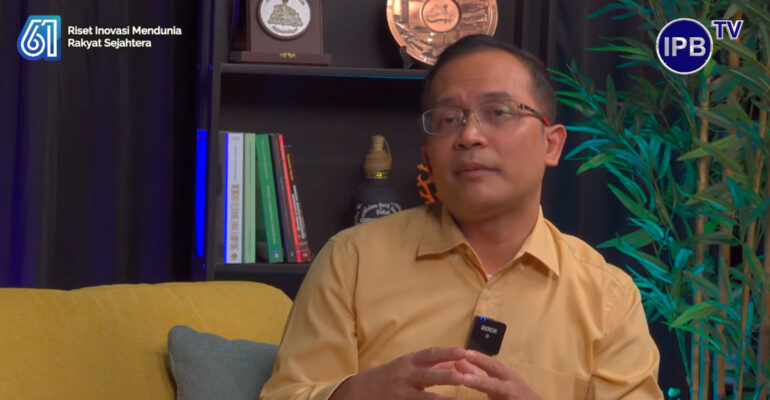IPB University Expert Explains the Impact of Climate Change on Ocean Fish Stocks

Indonesia is rich in coastal resources, such as coral reefs, seagrasses and beaches, which have high economic value. However, the sector also faces major challenges, including climate change.
Dr Perdinan, IPB University Expert on Climate Change Adaptation and Mitigation explained that climate change also affects marine ecosystems and fish stocks in the ocean.
“Climate change can disrupt fish resilience and catches, and affect coastal communities, because it can reduce water productivity,” said Dr Perdinan in the Farmers and Fishermen Center (TNC) Talks 10 Webinar, recently.
The lecturer at the Department of Geophysics and Meteorology, Faculty of Mathematics and Natural Sciences, IPB University, said that one of the impacts of climate change on marine ecosystems is a decrease in chlorophyll A levels, which plays an important role in fish abundance.
Furthermore, he also underlined the importance of understanding changes in weather patterns, such as the El Niño and La Niña phenomena. These natural phenomena can affect the movement of fish to deeper waters and away from the coast.
Dr Perdinan emphasized the importance of policies that support marine resource sustainability and sustainable management. One effort underway is Payment for Ecosystem Services, which allows fishers to be incentivized by sustainable management of coastal ecosystems.
“For this reason, it is important that we have accurate information about the number of fish stocks and the condition of the marine ecosystem. With the right policies, we can utilize climate change to support the fisheries sector and develop derivative industries from fisheries products,” he said.
One of the small-scale fishermen in Maluku, La Tohia, expressed his complaints regarding the disparities that fishermen in his region still have to face, one of which is related to subsidized fuel oil (BBM).
“Limited access to subsidized fuel greatly affects the sustainability of small fishermen’s fishing business,” he vented.
He revealed that with a ship size of one gross ton (GT), fishermen have to sail far to get a decent catch. Meanwhile, the government’s policy regarding subsidized fuel is considered not to accommodate the real needs in the field.
“We often have to fish in fishing zones that can be up to 30 to 40 nautical miles away. Meanwhile, to get incentives or a decent selling value, the government policy stipulates the size of the catch above 12 GT. This is certainly not in accordance with our reality in the field,” he said.
La Tohia hopes that the government can formulate policies that are more inclusive and in favor of small fishermen, especially in archipelagic regions such as Maluku, which have different geographical characteristics and logistical challenges compared to other regions in Indonesia.
Prof Hermanu Triwidodo, Head of TNC IPB University, revealed that this activity is one of TNC’s commitments in supporting sustainable fisheries and improving the welfare of fishermen. (*/Rz) (IAAS/RMH)


